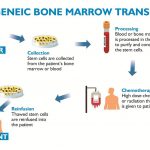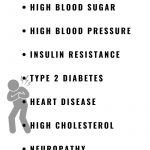
Contents
Side Effects of Cardura (doxazosin)
Cardura (doxazosin) is an alpha-1 adrenergic blocker used to treat high blood pressure (hypertension) and symptoms of benign prostatic hyperplasia (BPH, a noncancerous enlargement of the prostate gland).
Cardura prevents norepinephrine from binding to alpha-1 receptors on smooth muscle surrounding blood vessels, the prostate, and bladder. By blocking the effect of norepinephrine, Cardura relaxes the smooth muscle.
Relaxation of the smooth muscle surrounding blood vessels causes them to dilate and reduces blood pressure. Relaxation of smooth muscle in the prostate and bladder improves urine flow and reduces pain and discomfort in BPH.
Common side effects of Cardura include dizziness, fatigue, headache, shortness of breath, diarrhea, abdominal pain, fluid retention (edema), and low blood pressure.
Cardura causes a significant reduction in blood pressure after the first dose, which may be associated with dizziness and fainting when rising from a sitting position.
Serious side effects of Cardura include painful and prolonged penile erection (priapism), reduced white blood cell count, and intraoperative floppy iris syndrome (IFIS) during cataract surgery.
Cardura may interact with vardenafil or tadalafil, causing excessive blood pressure reduction.
Adequate studies of Cardura in pregnant and nursing women are not available. Consult your doctor before breastfeeding.
Important Side Effects of Cardura (doxazosin)
Common side effects of doxazosin include dizziness, fatigue, headache, shortness of breath, diarrhea, abdominal pain, fluid accumulation, and low blood pressure.
Doxazosin causes a significant reduction in blood pressure after the first dose, which may be associated with dizziness and fainting when rising from a sitting position. To avoid this, patients should rise slowly, start treatment with the 1 mg dose, and then gradually increase the dose as directed by their doctor.
Priapism and reduced white blood cell count have been associated with doxazosin.
More serious effects of doxazosin include intraoperative floppy iris syndrome (IFIS) during cataract surgery. Patients should inform their eye surgeon if they are taking doxazosin.
Cardura (doxazosin) Side Effects for Healthcare Professionals
Clinical Trials Experience
Adverse reaction rates observed in clinical trials of Cardura cannot be directly compared to rates in trials of other drugs and may not reflect real-world rates.
Benign Prostatic Hyperplasia (BPH)
Incidence rates of adverse events based on combined data from placebo-controlled trials are presented below (Table 2).
Table 1: Adverse Reactions Occurring more than 1% More Frequently in BPH Patients Treated with Cardura Versus Placebo
| BODY SYSTEM | Cardura N=665 |
Placebo N=300 |
| NERVOUS SYSTEM DISORDERS | ||
| Dizziness† | 15.6% | 9.0% |
| Somnolence | 3.0% | 1.0% |
| CARDIAC DISORDERS | ||
| Hypotension | 1.7% | 0% |
| RESPIRATORY, THORACIC AND MEDIASTINAL DISORDERS | ||
| Dyspnoea | 2.6% | 0.3% |
| GASTROINTESTINAL DISORDERS | ||
| Dry Mouth | 1.4% | 0.3% |
| GENERAL DISORDERS AND ADMINISTRATION SITE CONDITIONS | ||
| Fatigue | 8.0% | 1.7% |
| Oedema | 2.7% | 0.7% |
| †Includes vertigo | ||
Other adverse reactions occurring less than 1% more frequently in BPH patients treated with Cardura include palpitations.
Hypertension
In placebo-controlled studies, adverse events occurred in 49% and 40% of patients in the doxazosin and placebo groups, respectively, and led to discontinuation in 2% of patients in each group.
Adverse reactions occurring more than 1% more frequently in hypertensive patients treated with Cardura versus placebo are summarized in Table 2. Postural effects and edema appeared to be dose-related.
Table 2: Adverse Reactions Occurring more than 1% More Frequently in Hypertensive Patients Treated with Cardura versus Placebo
| BODY SYSTEM | Cardura N=339 |
Placebo N=336 |
| NERVOUS SYSTEM DISORDERS | ||
| Dizziness | 19% | 9% |
| Somnolence | 5% | 1% |
| RESPIRATORY, THORACIC AND MEDIASTINAL DISORDERS | ||
| Rhinitis | 3% | 1% |
| RENAL AND URINARY DISORDERS | ||
| Polyuria | 2% | 0% |
| REPRODUCTIVE SYSTEM AND BREAST DISORDERS GENERAL DISORDERS AND ADMINISTRATION SITE CONDITIONS | ||
| Fatigue / Malaise | 12% | 6% |
Other adverse reactions occurring less than 1% more frequently in hypertensive patients treated with Cardura include vertigo, hypotension, hot flushes, epistaxis, and edema.
Cardura has been associated with decreases in white blood cell counts.
Laboratory Changes Observed In Clinical Studies
Decreases in mean white blood cell (WBC) and mean neutrophil count were observed in controlled clinical trials of hypertensive patients receiving Cardura. WBC and neutrophil counts returned to normal after discontinuation of Cardura. No patients became symptomatic as a result of the low WBC or neutrophil counts.
Postmarketing Experience
The following additional adverse reactions have been reported during post-approval use of Cardura:
- Blood and Lymphatic System Disorders: leukopenia, thrombocytopenia;
- Immune System Disorders: allergic reaction;
- Nervous System Disorders: hypoesthesia;
- Eye Disorders: Intraoperative Floppy Iris Syndrome;
- Cardiac Disorders: bradycardia;
- Respiratory, Thoracic and Mediastinal Disorders: bronchospasm aggravated;
- Gastrointestinal Disorders: vomiting;
- Hepatobiliary Disorders: cholestasis, hepatitis cholestatic;
- Skin and Subcutaneous Tissue Disorders: urticaria;
- Musculoskeletal and Connective Tissue Disorders: muscle cramps, muscle weakness;
- Renal and Urinary Disorders: hematuria, micturition disorder, micturition frequency, nocturia;
- Reproductive System and Breast Disorders: gynecomastia, priapism.
Drug Interactions with Cardura (doxazosin)
CYP 3A Inhibitors
- In vitro studies suggest that doxazosin is a substrate of CYP 3A4. Strong CYP3A inhibitors may increase exposure to doxazosin.
- Monitor blood pressure and for symptoms of hypotension when Cardura is used concomitantly with strong CYP3A inhibitors.
Phosphodiesterase-5 (PDE-5) inhibitors
- Concomitant administration of Cardura with a phosphodiesterase-5 (PDE-5) inhibitor can result in additive blood pressure-lowering effects and symptomatic hypotension.
- Monitor blood pressure and for symptoms of hypotension.
Summary
Cardura (doxazosin) is an alpha-1 adrenergic blocker used to treat high blood pressure (hypertension) and symptoms of benign prostatic hyperplasia (BPH, a noncancerous enlargement of the prostate gland). Common side effects of Cardura include dizziness, fatigue, headache, shortness of breath, diarrhea, abdominal pain, fluid retention (edema), and low blood pressure. Cardura causes a significant reduction in blood pressure after the first dose. There are no adequate studies of Cardura in nursing mothers. Consult your doctor before breastfeeding.


